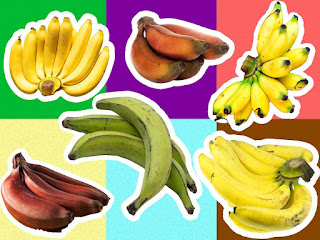Bananas and Diabetes: A Healthy Choice in Moderation
Bananas are often a go-to snack due to their convenience, taste, and impressive nutrient profile. Packed with potassium, calcium, magnesium, and various essential vitamins, bananas are undoubtedly a healthy food. But, if you have diabetes or are concerned about blood sugar levels, you might have heard conflicting advice about whether bananas should be part of your diet.
In this article, we’ll explore the nutritional benefits of bananas, address common concerns about their sugar content, and guide you on how to enjoy them without causing blood glucose spikes.
The Nutritional Power of Bananas
Bananas are an excellent source of key nutrients that play a vital role in maintaining overall health. Here’s a quick look at the essential nutrients they provide:
- Potassium: Important for heart health and blood pressure regulation.
- Magnesium: Supports muscle function and bone health.
- Calcium: Vital for strong bones and teeth.
- Fiber: Aids digestion, supports metabolism, and helps regulate blood sugar levels.
- Vitamins: Includes Vitamin C, Vitamin B6, and folate, which are all essential for immune function and energy production.
These nutrients, when consumed as part of a balanced diet, can contribute to better heart health, improved digestion, and increased energy levels.
Why Are People Concerned About Bananas and Diabetes?
The main concern with bananas and diabetes is their carbohydrate content. Bananas are considered high in natural sugars, specifically fructose, which can lead to a rise in blood sugar levels. As a result, people with diabetes often avoid bananas, fearing they may cause a sugar spike.
However, there’s more to the story.
Bananas and Blood Sugar: The Fiber Effect
The sugar in bananas is absorbed into the bloodstream at a slower rate thanks to their fiber content. Bananas contain both soluble and insoluble fiber, which helps to slow down the digestion process and the absorption of sugar. This means the sugar is released gradually, preventing rapid spikes in blood glucose.
Additionally, the fiber in bananas also aids in controlling appetite, which can help manage weight—a crucial factor for managing diabetes.
Can Diabetics Enjoy Bananas?
The answer is yes! Bananas can be a part of a healthy diet for diabetics when consumed in moderation. The key is to control portion sizes. A small to medium-sized banana can provide the nutritional benefits without causing a significant increase in blood sugar.
Tips for Enjoying Bananas with Diabetes:
- Stick to One Small Banana: A small banana contains approximately 100 calories, and this amount provides a good balance of nutrients without excessive sugar.
- Pair with Protein or Healthy Fats: Combining bananas with a protein or healthy fat (like nuts or yogurt) can further slow the absorption of sugar and help stabilize blood sugar levels.
- Timing is Key: Consider eating a banana as part of a balanced meal rather than alone as a snack. This will help prevent blood sugar spikes.
Bananas and Weight Loss: Can They Fit Into a Weight Loss Plan?
Bananas, while calorie-dense, can also play a role in supporting weight loss. Their high fiber content aids in digestion, supports metabolism, and keeps you feeling full for longer, which can reduce cravings for unhealthy snacks.
Bananas are perfect for a light snack, especially when consumed around lunchtime. Since they provide energy, they can be a great option for a quick pick-me-up without packing in empty calories.
Top FAQs About Bananas and Diabetes
1. Can I eat bananas if I have diabetes?
Yes, you can eat bananas in moderation. A small banana offers health benefits without causing significant blood sugar spikes, especially when paired with a balanced diet.
2. Do bananas raise blood sugar levels?
Bananas do contain sugar, but the fiber content helps to slow the absorption of sugar into the bloodstream, preventing rapid blood sugar spikes.
3. How many bananas can diabetics eat in a day?
Generally, one small banana (about 100 grams) per day is safe for most people with diabetes. It’s essential to monitor how your body responds and adjust accordingly.
4. Are bananas good for weight loss?
Yes! Bananas are rich in fiber, which supports digestion and helps control appetite. Just be mindful of portion sizes to ensure they fit within your daily calorie goal.
5. When is the best time to eat a banana?
Eating bananas as part of a balanced meal, especially during the day, is ideal. You can pair them with protein or fats to maintain stable blood sugar levels and keep hunger at bay.
Conclusion: Bananas – A Healthy Choice in Moderation
Bananas offer a wealth of health benefits, from supporting heart health to boosting energy levels. While there’s a common belief that the carbohydrates in bananas can cause blood sugar spikes, their high fiber content actually helps regulate sugar absorption, making them a viable option for diabetics when consumed in moderation.
As with any food, the key is moderation. By keeping portions small and pairing bananas with other nutritious foods, you can enjoy this tasty and nutritious fruit while managing your blood sugar levels effectively.


%20Foods%20That%20May%20Ease%20Your%20Pain.jpg)





%20Benefits,%20Uses,%20and%20Everything%20You%20Need%20to%20Know%20-%20Healthy%20Roots%20&%20Habits,%20Healthy%20Roots%20&%20Habits%20Blog.jpg)
%20Benefits,%20Nutrition,%20Side%20Effects,%20and%20How%20to%20Use.jpg)


No comments:
Post a Comment